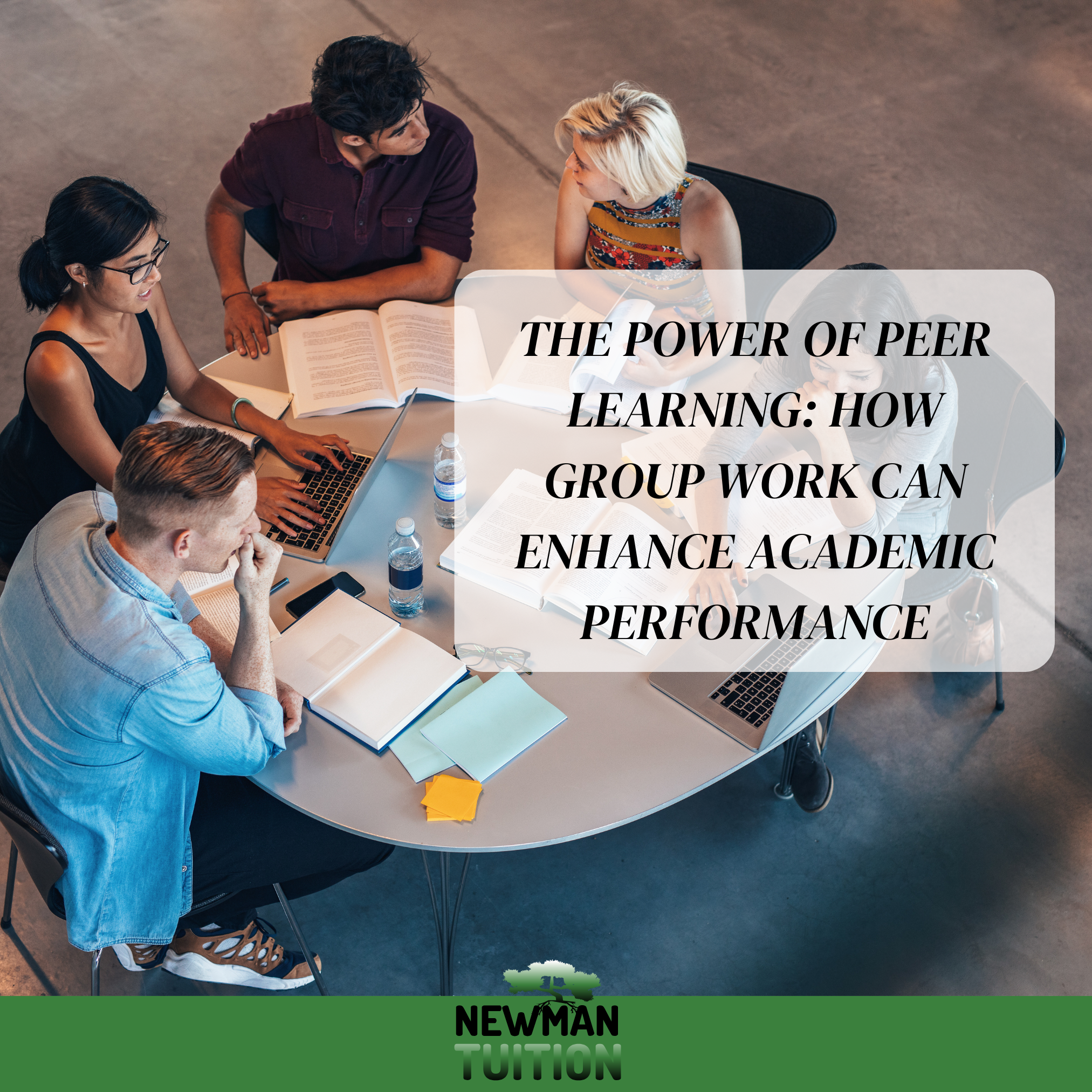The Power of Peer Learning: How Group Work Can Enhance Academic Performance

In a world where individual achievement is often emphasised, it’s easy to overlook the benefits of working with others. Yet, when it comes to education, peer learning – learning with and from fellow students – can be a powerful tool to deepen understanding, boost confidence, and enhance academic performance.
At Newman Tuition, we’ve seen first-hand how collaborative learning environments can complement one-to-one tuition and make a lasting impact on students of all ages.
What is Peer Learning?
Peer learning involves students working together to discuss concepts, solve problems, and support each other’s learning journeys. This could happen in small study groups, during classroom activities, or even informally outside lessons.
It’s not about one student teaching another, but rather about shared learning experiences where everyone contributes. The key lies in mutual support, active participation, and diverse perspectives.
Why Group Work Works
1. Reinforces Understanding
Explaining a concept to someone else requires a clear grasp of the topic. When students teach or discuss ideas with their peers, they’re more likely to consolidate their own understanding.2. Encourages Critical Thinking
Group work naturally invites discussion and debate. This exposure to different viewpoints challenges students to think more deeply and critically – a skill that’s vital not only in exams but in life beyond the classroom.3. Builds Confidence
For students who are shy or anxious in class, a small, supportive group can offer a safe space to voice their thoughts. This can help build self-esteem and make learning more enjoyable.4. Enhances Communication Skills
Collaborative learning develops essential interpersonal skills: active listening, articulating ideas clearly, and respecting others’ opinions – all vital for academic and professional success.5. Promotes Accountability
When students work together, they often feel a sense of responsibility not just for their own learning, but for the group’s progress. This encourages motivation and helps keep everyone on track.Peer Learning and Tutoring: A Powerful Combination
While one-to-one tuition provides personalised support, integrating group learning can offer added benefits. At Newman Tuition, we occasionally facilitate paired or small group sessions for students preparing for similar exams or studying the same subject. These sessions often spark lively discussions, collaborative problem-solving, and mutual encouragement.
Parents often tell us their child is more engaged after a group session, having realised they’re not alone in their struggles and that other students share similar questions and goals.
How to Encourage Peer Learning at Home
Whether your child is in primary school or preparing for A-Levels, here are a few ways to encourage peer learning outside the classroom:
- Organise study groups with classmates or friends, especially during exam season.
- Use online platforms to collaborate on assignments or share revision notes.
- Practice ‘teaching’ at home – encourage your child to explain a concept they’ve just learned to a sibling, parent or friend.
- Celebrate collaborative efforts – remind children that learning isn’t a competition, and there’s value in working together.
At Newman Tuition, we believe in a holistic approach to education – one that values not only academic excellence but also collaboration, confidence, and community. Peer learning, when thoughtfully integrated, can help students thrive both in and out of the classroom.
Interested in combining personalised tuition with collaborative learning? Contact us today to find out how we can support your child’s journey.